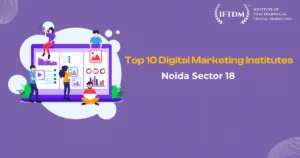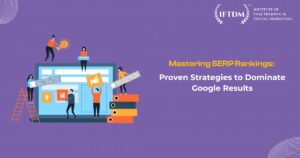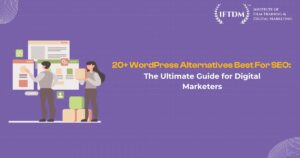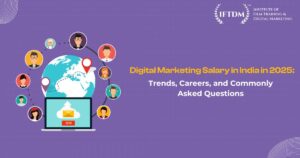Social media has become an inseparable part of students’ lives. From sharing memes to finding research papers, platforms like Instagram, YouTube, and Facebook are constantly at the tip of our fingers. But have you ever considered how social media truly impacts your academic and personal life? While it offers countless opportunities for learning and growth, there are hidden risks that can affect students more than they realize.
In this blog, we’ll explore some of the key advantages and serious disadvantages of social media for students. By the end, you’ll understand why social media is a double-edged sword and how to use it responsibly.
Advantages of Social Media for Students
1. Access to Instant Information
Social Media helps students stay updated on virtually any subject, from world events to niche academic fields. Whether it’s a TED Talk or breaking news, the information is only a click away.
Personally, I love to take inspiration using various social media platforms when I am out of topic, it’s an incredible tool for learning countless new things.
2. Improved Communication and Collaboration
Social media students help to improve communication among students and between students and educators. Group chats, study groups, and online communities create opportunities for seamless collaboration on projects and assignments. Students can share ideas, work on documents in real-time, and receive instant feedback.
Additionally, social media platforms like WhatsApp and Microsoft Teams help facilitate group discussions and meetings, eliminating the barriers of physical distance and scheduling conflicts. This convenience helps foster teamwork and nurture valuable interpersonal skills.
3. Increased Student Engagement
When used effectively, social media can increase student engagement in academic activities. Many educators use social media to share supplementary materials, quizzes, and live polls, which can make learning more interactive and enjoyable. The integration of multimedia content—such as videos, podcasts, and infographics—helps cater to different learning styles, ensuring that students remain engaged and motivated.
4. Building Professional Networks
Social media platforms like LinkedIn offer students the opportunity to build professional networks before they even graduate. Students can connect with industry professionals, mentors, and peers in their field of interest. They can follow thought leaders, join industry-specific groups, and stay updated with the latest trends and opportunities.
By establishing a strong online presence, students can enhance their visibility in the job market, participate in internships, and gain valuable insights that can shape their career paths.
5. Global Awareness and Cultural Exposure
With social media, students are constantly exposed to diverse perspectives from people all over the world. This broadens their understanding of different cultures and global issues.
Other than these advantages, social media offers numerous other benefits. It helps students find job opportunities through platforms like LinkedIn or provides access to internships and freelance gigs. From being an emotionally supportive partner through mental health communities, where students can connect with others facing similar challenges, to being a great stress reliever with memes, funny videos, and entertaining content that helps students unwind, it’s a great friend when used wisely.
Disadvantages of Social Media for Students
Just like any other thing on the planet social media too with its advantages or benefits has its own set of disadvantages, let’s discuss them:
1. Distraction from Studies
One of the most significant drawbacks of social media for students is its potential to distract from academic responsibilities. With endless streams of notifications, messages, and content updates, students may find it challenging to concentrate on their studies. Procrastination becomes more likely, as students can easily spend hours scrolling through feeds instead of focusing on their assignments or exams.
To combat this, students must learn to manage their time effectively and set clear boundaries between academic and recreational use of social media.
2. Cyberbullying and Online Harassment
Unfortunately, social media is also a breeding ground for cyberbullying and harassment. Students may face negative comments, hurtful messages, or even targeted attacks, which can take a toll on their mental health. The anonymity that social media offers often emboldens individuals to engage in harmful behavior without facing real-world consequences.
Victims of cyberbullying may experience anxiety, depression, and even withdrawal from social interactions, both online and offline. Schools and educators must provide students with tools to recognize and report cyberbullying and create a supportive environment where they feel safe.
3. Addiction and Overdependence
Social media addiction is a growing concern among students. Excessive use of platforms like Instagram, YT Shorts as well as FB can lead to compulsive behavior, where students feel the need to constantly check for updates, likes, and comments. This overdependence can have detrimental effects on their productivity, mental health, and sleep patterns.
Social media addiction may also result in students prioritizing their virtual lives over real-world experiences, leading to social isolation and decreased academic performance.
4. Exposure to Misinformation
With the sheer volume of information shared on social media, students are often exposed to misinformation and fake news. Inaccurate or biased content can shape their understanding of important topics, leading to misunderstandings and misguided opinions.
Students must develop critical thinking skills and learn how to verify sources, cross-check facts, and identify credible information. Educational institutions should emphasize digital literacy to help students navigate the online world responsibly.
5. Negative Impact on Mental Health
Excessive use of social media can negatively impact students’ mental health. The constant comparison to others’ seemingly perfect lives can lead to feelings of inadequacy, anxiety, and low self-esteem. Students may experience pressure to present an idealized version of themselves, which can contribute to stress and emotional exhaustion.
Moreover, the addictive nature of social media disrupts students’ sleep patterns, exacerbating mental health issues. Students often make unrealistic comparisons to influencers, leading to feelings of inadequacy and negative body image. Sharing too much personal information also raises privacy and security risks, including identity theft. Excessive social media use is linked to increased anxiety, depression, and loneliness. Thus, striking a balance between online engagement and personal well-being is essential for maintaining a healthy mindset.
A Double-Edged Sword!
Social media is undeniably a powerful tool for students. It offers a wealth of knowledge, networking opportunities, and personal growth. However, it also poses risks like distraction, addiction, and negative mental health effects. The key to making the most of social media is balance—using it wisely to enhance your education while minimizing its harmful impacts.
Turn Social Media into Your Career!
If you’re passionate about social media and want to turn it into a career, now’s the perfect time to act! At IFTDM, we offer an in-depth Social Media Marketing course that helps you transform your social media skills into a powerful career asset.
Enroll today and learn how to create content, build a brand, and analyze performance like a pro!
FAQs About Advantages & Disadvantages of Social Media
How can social media be used for educational purposes?
Social media provides access to educational content like tutorials, webinars, and study groups. Teachers, institutions, and students can connect, share resources, and collaborate on projects, enhancing learning beyond the classroom.
What are some ways to avoid social media addiction?
Set time limits, use app-blocking tools, turn off notifications, and allocate specific times for checking social media. Engage in offline activities and hobbies to reduce reliance on social platforms.
Is social media effective for brand building?
Yes, social media is a powerful brand-building tool. It helps businesses establish a recognizable online presence, share their story, and connect with a targeted audience to build brand loyalty and trust.
What are the economic impacts of social media?
Social media drives business growth, especially for small businesses that use it for cost-effective marketing. It also supports job creation, with careers in digital marketing, content creation, and social media management.
Can social media influence political opinions?
Social media has a strong influence on political views. Campaigns, ads, and shared news stories can impact public opinion, although it may also spread misinformation and create echo chambers where people only see views similar to their own.
How does social media affect relationships?
Social media can both positively and negatively affect relationships. It allows people to stay in touch but can sometimes lead to misunderstandings, jealousy, and conflicts due to the public nature of posts and online interactions.
What are the dangers of fake news on social media?
Fake news can spread rapidly on social media, leading to confusion, harm to reputations, and public panic. It may also influence political, social, and financial decisions in a misleading way.
What are social media influencers?
Social media influencers are individuals who have a large following and influence their audience’s purchasing decisions through content, brand partnerships, and endorsements. They can be bloggers, celebrities, or experts in a particular field.






